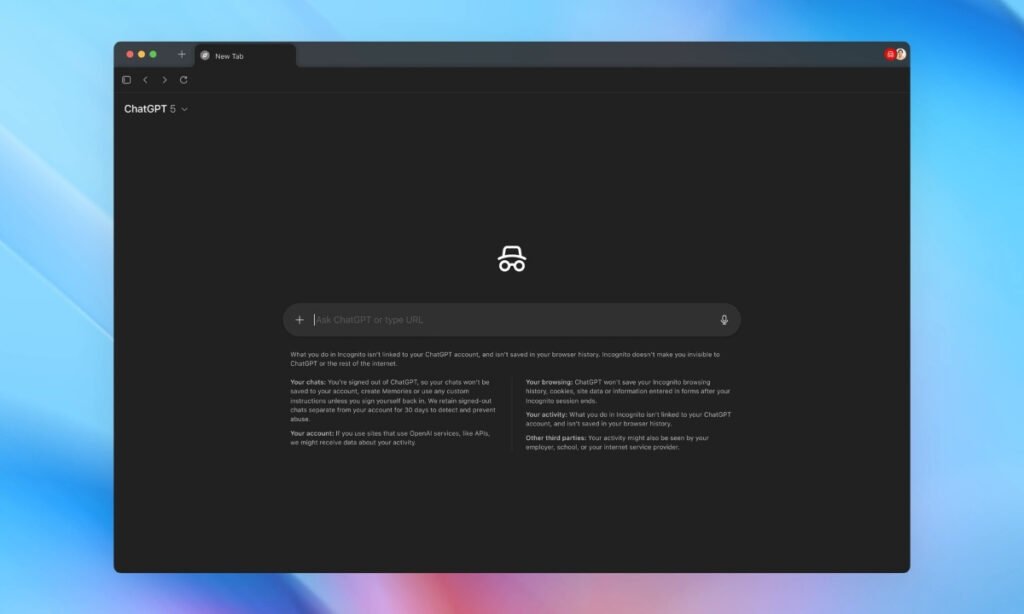OpenAI, the creator of ChatGPT, has officially entered the web browser market with the launch of Atlas, setting the stage for a new rivalry with Google Chrome. The move positions OpenAI to turn its successful AI chatbot into a full-fledged internet portal, blending browsing, search, and artificial intelligence into one seamless experience.
A Browser Built Around AI
According to OpenAI, Atlas debuted on Tuesday for Apple laptops, with support for Windows, iOS, and Android rolling out soon. CEO Sam Altman described the launch as a “once-in-a-decade opportunity” to rethink what a web browser can be, emphasizing that AI will play a central role in how users interact with the internet.
Unlike traditional browsers that rely on a search bar and tabs, Atlas introduces a chat-based interface that lets users simply ask questions, explore topics, and even automate browsing tasks. The browser’s “Agent Mode” can log in to websites, click around pages, and gather information on behalf of users essentially browsing the internet for you.
“It’s using the internet on your behalf,” Altman said during the launch presentation.
Challenging Google’s Market Dominance
The launch comes at a time when Google Chrome dominates the browser landscape with over 3 billion global users. Competing against such scale is no small task, as analyst Paddy Harrington from Forrester Research noted:
“It will be a big challenge competing with a giant who has ridiculous market share”.
Still, OpenAI may be hoping to replicate Google’s own success story. When Chrome launched in 2008, Microsoft’s Internet Explorer appeared untouchable yet Chrome’s speed and simplicity helped it dominate the market within a few years.
Similarly, OpenAI’s bet is that AI-first design could redefine how people browse the web.
The AI Search Shift
OpenAI’s browser arrives amid a broader shift in how people search for information. According to an AP-NORC survey, about 60% of Americans and 74% of those under 30 now use AI tools to find answers online.
Google has already begun integrating AI-generated summaries into its search results via Gemini, its AI model. However, OpenAI aims to go further by making AI the core of the browsing experience, not just an added feature.
Privacy, Personalization, and Concerns
While Atlas offers convenience, it also raises privacy questions. The browser builds a personalized profile based on user history and interactions, something that could enhance accuracy but also fuel concerns about data use and targeted advertising.
“For users, it’s like giving away a bit of your personality,” said Harrington. “Your profile becomes tuned to what the AI thinks you want, but is it really you or what it decides for you?”
This tension between personalization and autonomy is at the heart of the AI browser debate.
Also Read: AI Is Using Your Data to Set Prices And It Might Be Charging You More
The Competition Heats Up
OpenAI isn’t alone in this race. Earlier this year, Perplexity AI launched its own Comet browser, even making an unsolicited $34.5 billion bid for Chrome after a U.S. court ruled against Google’s breakup in a monopoly case.
Judge Amit Mehta noted that developments in AI were already transforming the competitive landscape and the arrival of Atlas seems to prove that point.
The Bigger Picture
OpenAI’s move into browsers could help it tap into the advertising market that fuels much of Google’s revenue. With ChatGPT now surpassing 800 million users, OpenAI has massive reach but still faces financial pressure, as most users access its chatbot for free.
By turning ChatGPT into an AI-powered browser, OpenAI could capture more engagement, more data, and eventually, more ad dollars all while reshaping how people experience the web.
Whether Atlas becomes the next Chrome or fades like others before it remains to be seen. But one thing is clear: AI isn’t just changing how we search, it’s redefining how we browse.


